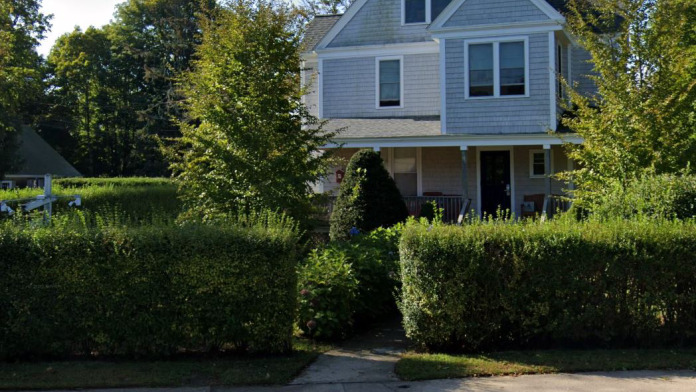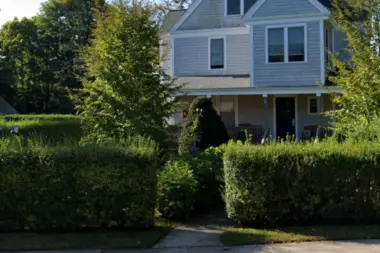Was asked to share my experience, strength and hope with the individuals presently at the Mission. Good vibes from the second I arrived that will last forever due to the receptiveness and participation of the determined residents. Looking forward to returning and helping th ...
About Galilee Mission
Addiction-related services at this facility include residential treatment, outpatient substance abuse treatment, and sober living services.
Inpatient addiction treatment
This is a 12-bed inpatient addiction facility based on the 12-step principles of recovery and the value of work. This program is for men aged 18 and older who can make a 6-month commitment to stay here. Treatment consists of evidence-based therapy, self-help groups, counseling, and household chores and commitments.
Outpatient addiction treatment
This substance abuse treatment is for individuals who can live at home and attend treatment during the day or in the evenings. Experienced counselors work with individuals to create unique recovery plans.
Sober living
This is a less structured environment but still a sober living home and is a residence for up to 6 men. Requirements for residence here is attendance to AA or NA, a full-time job, and have a continued focus on sobriety.
Facility Overview
Latest Reviews
Rehab Score
Gallery


Other Forms of Payment
Private insurance refers to any kind of healthcare coverage that isn't from the state or federal government. This includes individual and family plans offered by an employer or purchased from the Insurance Marketplace. Every plan will have different requirements and out of pocket costs so be sure to get the full details before you start treatment.
Self-pay involves paying for treatment out of your own pocket. You can use savings or credit, get a personal loan, or receive help from family and friends to fund your treatment. If you don't have insurance or your insurance plan doesn't cover a specific program, self-pay can help ensure you still get the care you need.
Financial aid can take many forms. Centers may have grants or scholarships available to clients who meet eligibility requirements. Programs that receive SAMHSA grants may have financial aid available for those who need treatment as well. Grants and scholarships can help you pai for treatment without having to repay.
Medicaid is a state based program that helps lower-income individuals and families pay for healthcare. Medicaid covers addiction treatment so those enrolled can use their coverage to pay for rehab. When a program accepts Medicaid the client often pays very little or nothing out of their own pocket.
Addiction Treatments
Levels of Care
Assessments, court-ordered treatment, urinalysis and outpatient counseling are additional services offered to those waiting to come into treatment, or who want to try a new path of addressing substance use. These services are offered to anyone seeking counseling without a stay at the facility. They will work closely with the individual, as well as any family members, or legal officials, that the client may request to be involved.
Galilee House is a 12-bed residential treatment facility located in the seaside town of Narragansett. Work is a major emphasis of the program. Residents are required to find a job within three weeks of admission. Their treatment program is based on the 12-step principles of recovery. They utilize evidence based therapy as well as other proven clinical methods. Residents are required to attend community based self-help groups, participate in individual and group counseling, join in weekly activity therapy and perform household chores. The program is open to any male over the age of 18.
Galilee Mission also offers a transitional sober housing. Captain Tom House is a transitional sober housing facility for up to six men. Residents accepted into the Captain Tom House have completed significant residential substance abuse treatment and have a minimum of six months sobriety or clean time. While living in the Captain Tom House residents are required to maintain full time employment and pay a weekly program fee. Active participation in AA/NA is also part of the program, and there are many AA/NA support groups in the local area. Outpatient counseling and group sessions are also available to residents.
Intensive outpatient programs (IOP) support clients' long-term sobriety and their successful reintegration into the community through high-level services that evolve with clients' changing needs. The intensity and frequency of treatment decrease as clients stabilize, but most IOP programs involve between nine and 20 hours of treatment weekly. Intensive outpatient rehabs specialize in an array of services, including psychotherapy, medication assisted treatment (MAT), addiction and recovery education, and holistic care, such as massage and biofeedback.
Treatments
The goal of treatment for alcoholism is abstinence. Those with poor social support, poor motivation, or psychiatric disorders tend to relapse within a few years of treatment. For these people, success is measured by longer periods of abstinence, reduced use of alcohol, better health, and improved social functioning. Recovery and Maintenance are usually based on 12 step programs and AA meetings.
During drug rehab in Rhode Island, you'll participate in a variety of therapeutic interventions designed to help you break free from addiction. Common methods include cognitive behavioral therapy, music and art therapy, 12-step support, and nutrition/exercise.
Substance rehabs focus on helping individuals recover from substance abuse, including alcohol and drug addiction (both illegal and prescription drugs). They often include the opportunity to engage in both individual as well as group therapy.
Programs
Adult rehab programs include therapies tailored to each client's specific needs, goals, and recovery progress. They are tailored to the specific challenges adult clients may face, including family and work pressures and commitments. From inpatient and residential treatment to various levels of outpatient services, there are many options available. Some facilities also help adults work through co-occurring conditions, like anxiety, that can accompany addiction.
Young adulthood can be an exciting, yet difficult, time of transition. Individuals in their late teens to mid-20s face unique stressors related to school, jobs, families, and social circles, which can lead to a rise in substance use. Rehab centers with dedicated young adult programs will include activities and amenities that cater to this age group, with an emphasis on specialized counseling, peer socialization, and ongoing aftercare.
Clinical Services
Research clearly demonstrates that recovery is far more successful and sustainable when loved ones like family members participate in rehab and substance abuse treatment. Genetic factors may be at play when it comes to drug and alcohol addiction, as well as mental health issues. Family dynamics often play a critical role in addiction triggers, and if properly educated, family members can be a strong source of support when it comes to rehabilitation.
Group therapy is any therapeutic work that happens in a group (not one-on-one). There are a number of different group therapy modalities, including support groups, experiential therapy, psycho-education, and more. Group therapy involves treatment as well as processing interaction between group members.
In individual therapy, a patient meets one-on-one with a trained psychologist or counselor. Therapy is a pivotal part of effective substance abuse treatment, as it often covers root causes of addiction, including challenges faced by the patient in their social, family, and work/school life.
Life skills trainings involve all the skills a person must have in order to function successfully in the world. These include time management, career guidance, money management, and effective communication. Truly successful addiction recovery is based on the ability to not only live substance-free, but to thrive. Life skills teaches the practical necessities of functioning in society, which sets clients up for success in life, and therefore sobriety.
Amenities
-
Residential Setting
-
Private Setting
Staff
Lynn Serra
Executive Director
Steve Thompson
Residential Facilities Director
Beth Cooke
Outpatient Clinical Supervisor
Helena Coffey
3.1 Clinical Supervisor
Contact Information
268 Kingstown Road
Narragansett, RI 02882